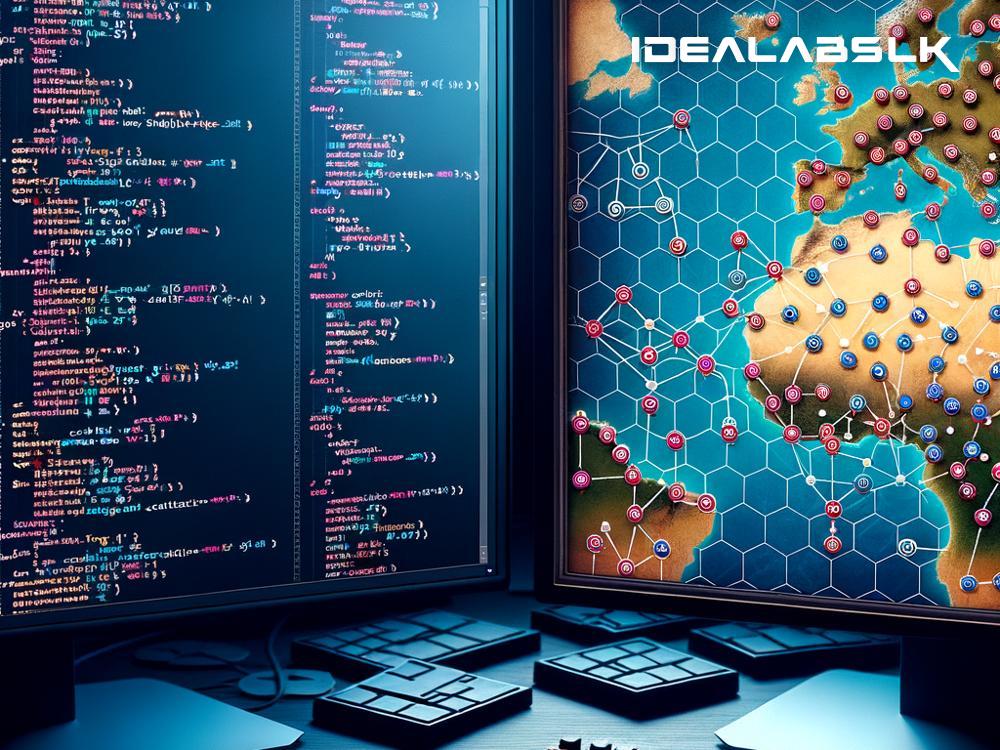AI Revolutionizing Strategy Games: A 2024 Outlook
As we move towards 2024, the landscape of strategy games is undergoing a transformation that is both exciting and awe-inspiring. This transformation is fueled by advancements in Artificial Intelligence (AI). Gone are the days when AI opponents in strategy games were predictable, making gameplay a mere routine after a certain level of mastery. Instead, the new dawn brings with it an AI that learns, adapts, and challenges even the most seasoned strategy game aficionados.
AI: Beyond Pre-Programmed Patterns
Traditionally, AI in strategy games relied heavily on pre-programmed patterns and scenarios. These AI opponents had predictable behaviors, limited by the foresight and imagination of their programmers. While enjoyable, they often lacked the spontaneity and adaptiveness of human opponents. However, as we head into 2024, AI in strategy games is breaking free from these chains.
The key to this revolution is machine learning, a subset of AI that enables computer programs to learn and adapt by analyzing data and identifying patterns. Through machine learning, AI opponents in strategy games are no longer confined to a set script. Instead, they can learn from each encounter, making them more unpredictable and challenging.
Dynamic and Responsive Gameplay
Imagine diving into a strategy game where each move you make is closely analyzed by your AI opponent. Based on your tactics, the AI adapts its strategy, ensuring no two games are ever the same. This dynamic approach means that players must continually evolve their gameplay, making the experience infinitely more engaging.
Moreover, this adaptiveness also allows for a more personalized gaming experience. AI can tailor its difficulty and strategy based on the player’s skill level, ensuring that both novices and experts find the game equally challenging and rewarding.
Strategy Games as Learning Tools
The application of advanced AI in strategy games also transforms these platforms into powerful learning tools. Players are not just competing against a more intelligent opponent; they are also learning and adapting their strategies in real-time. This interaction promotes critical thinking, problem-solving, and adaptability – skills that are invaluable in both the virtual and real world.
Furthermore, the complexity and unpredictability introduced by AI can simulate real-world scenarios much more accurately. This aspect is particularly beneficial for educational strategy games, where players can learn about historical battles, economic principles, or environmental management, to name a few, in a more engaging and impactful manner.
Enhancing Multiplayer Experiences
While the focus has largely been on AI improving single-player experiences, its impact on multiplayer aspects of strategy games is equally noteworthy. With AI capable of mimicking human-like strategies and responses, players can train against AI opponents to sharpen their skills before facing real-world adversaries.
Additionally, AI can fill in for human players, ensuring that games remain engaging even when there's a shortage of players. This feature is especially useful for matching players of similar skill levels, ensuring fair and stimulating matches.
Challenges and Ethical Considerations
Despite the tremendous potential, integrating advanced AI into strategy games is not without its challenges. One of the primary concerns is the computational power required to support such sophisticated AI, which could limit accessibility to players with high-end gaming setups.
Moreover, there's an ethical dimension to consider. As AI becomes more human-like in its strategy and decision-making, the line between AI and human opponents blurs. This advancement calls for careful consideration to ensure that the use of AI remains responsible and enhances the gaming experience without diminishing the human aspect of gaming.
A New Era of Strategy Gaming
As we edge closer to 2024, the future of strategy games looks bright, with AI at the helm of this exciting transformation. The advent of AI capable of learning and adapting promises a revolution in how we play and perceive strategy games. This change is not just about making games more challenging; it's about making them infinitely more engaging, educational, and accessible.
The journey towards this future is fraught with challenges, both technical and ethical. However, as developers continue to innovate and refine AI technology, the potential benefits for strategy gaming are immense. The evolution of AI in strategy games heralds a new era where every game is a new adventure, every opponent a new challenge, and every victory a testament to the player's skill, adaptability, and strategic prowess. Welcome to the future of strategy gaming – a future where AI is not just an opponent but a catalyst for innovation, learning, and endless entertainment.

